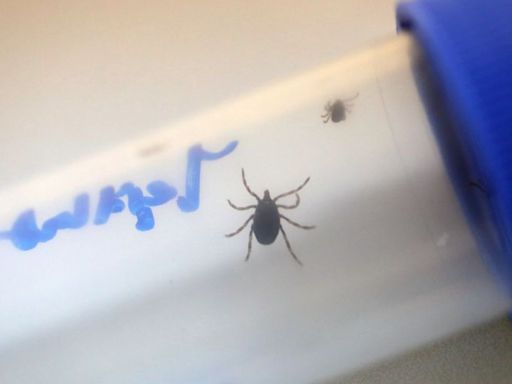Search results
Ebola, also known as Ebola virus disease (EVD) and Ebola hemorrhagic fever (EHF), is a viral hemorrhagic fever in humans and other primates, caused by ebolaviruses. Symptoms typically start anywhere between two days and three weeks after infection. [3]
- www.who.int
- › Newsroom
- › Fact sheets
- › Detail
Apr 20, 2023 · Ebola enters the body through cuts in the skin or when touching one’s eyes, nose or mouth. Early symptoms include fever, fatigue and headache. Some types of Ebola can be prevented with vaccines and treated with medicines.
Ebola disease is caused by a group of viruses, known as orthoebolaviruses (formally ebolavirus) 1. These viruses can cause serious illness that, without treatment, can cause death. Orthoebolaviruses were discovered in 1976 in the Democratic Republic of the Congo and are found primarily in sub-Saharan Africa.
- www.who.int
- › Health topics
Dec 9, 2022 · Ebola virus disease (EVD), formerly known as Ebola haemorrhagic fever, is a severe, often fatal illness affecting humans and other primates. The virus is transmitted to people from wild animals (such as fruit bats, porcupines and non-human primates) and then spreads in the human population through direct contact with the blood ...
Jul 7, 2024 · Ebola, infectious disease caused by a virus of the family Filoviridae that is responsible for a severe and often fatal viral hemorrhagic fever. In humans, ebolaviruses cause fatality in 25 to 90 percent of cases.
Apr 9, 2019 · The Ebola virus causes a disease that kills up to 90 percent of those who contract it, but a promising vaccine could provide protection.
- www.who.int
- › Newsroom
- › Questions and answers
- › item
Jun 19, 2019 · Ebola virus disease (formerly known as Ebola haemorrhagic fever) is a rare but severe, often fatal , often fatal illness, with a death rate of up to 90% in humans caused by the Ebola virus, a member of the filovirus family. Death rates have varied from 25% to 90% in past outbreaks.
Featured Expert: Brian Thomas Garibaldi, M.D. Ebola is a disease caused by a hemorrhagic fever virus. Fatality rates have varied from 25% to 90% in past outbreaks. The average fatality rate is around 50%.
Nov 22, 2023 · Ebola is a type of viral hemorrhagic fever caused by several species of viruses from the genus Ebolavirus. Symptoms of Ebola start out flu-like but can progress to severe vomiting, bleeding and neurological (brain and nerve) issues. Ebola can spread to people from bats, nonhuman primates and antelope.
Ebola Virus Disease is a serious infectious disease spread between humans from person to person. Infection is transmitted by direct or indirect contact with the blood, body fluids or secretions (stool, urine, saliva, semen) of infected people, but only when they show symptoms.

